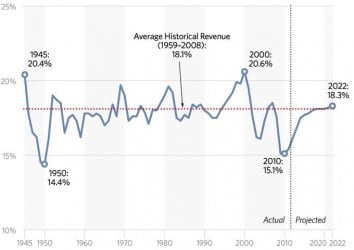Quantum Windbag
Gold Member
- May 9, 2010
- 58,308
- 5,100
- 245
Who'da thunk it? If only someone had pointed this out before we might have been able to do something like cut spending instead of trying to raise taxes.
9 Takeaways From the CBO?s New Budget Report - Hit & Run : Reason.com
9 Takeaways From the CBO?s New Budget Report - Hit & Run : Reason.com


